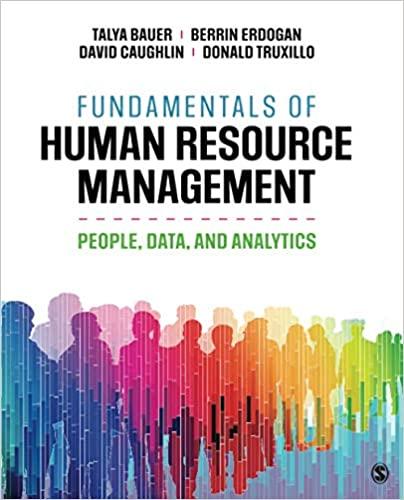What do Rolls-Royce, Walmart, Royal Dutch Shell, and SAP have in common? These companies and others have
Question:
What do Rolls-Royce, Walmart, Royal Dutch Shell, and SAP have in common? These companies and others have faced investigations of corruption and bribing government officials to facilitate winning government contracts, getting permits, or obtaining licenses. A challenge all multinationals face is to uphold global ethical standards in diverse regions, including locations where anticorruption laws are loosely enforced or nonexistent and bribing government officials is considered a normal way of doing business. How can global businesses ensure that they uphold global principles of ethics in their operations around the world while conducting business effectively?
Global organizations will benefit from enforcing a culture of ethics and integrity throughout their operations. This seems like common sense, given that allowing bribery and corruption in some parts of their operations threatens the culture and reputation of the entire operation. It is also important to remember that even though local businesses may in fact be using bribes to speed the process of approvals or facilitate their operations, multinationals are often held to a different and higher standard in other countries, making their ethics violations all the more damaging. A few steps multinationals can take and HR can facilitate are as follows:
Commit to a culture of integrity. Multinationals should have top management who value and embrace ethics in global operations. This means a strong commitment for doing the right thing, dealing with unethical actions quickly, and holding people accountable.
Eliminate undue performance pressures. Often, unethical actions are a symptom of pressures for short-term results. When headquarters evaluate performance of subsidiaries using short-term results such as how quickly a store was opened, pressure increases on local employees to get things done at all costs. It also signals to third parties that the company is in a hurry, giving them leverage to pressure the company.
Provide training and policies. It is important to provide training not only about defining acceptable and unacceptable behaviors but also teaching employees what to do when confronted with questionable requests.
Monitoring compliance via committees and audits can also help.
Eliminate a culture of silence. It is important to encourage people to speak up about questionable ethical behaviors. Giving employees anonymous ways of reporting unethical behaviors and ensuring that reports are followed by action will help create a culture of ethics.
Questions
1. As an HR professional, suppose you are assigned to arrange for your company’s international employees to receive ethics training to define acceptable and unacceptable behaviors and to know what to do when confronted with questionable requests. How would you develop a set of training objectives? Would you hire an outside training vendor, and if so, how would you select the vendor?
2. Find an example in the news or in the HR literature of a global company that was accused of corruption. How was the case resolved?
What did the individuals involved do right, and what could they have done better?
Step by Step Answer:

Fundamentals Of Human Resource Management People Data And Analytics
ISBN: 9781544377728
1st Edition
Authors: Talya Bauer, Berrin Erdogan, David E. Caughlin, Donald M. Truxillo





